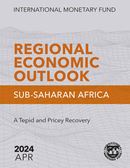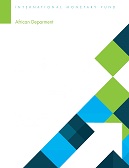This web page provides information in on the activities of the Office, views of the IMF staff, and the relations between Togo and the IMF. Additional information can be found on Togo and IMF country page, including official IMF reports and Executive Board documents in English and French that deal with Togo.
At a Glance
- Togo joined the Fund in August 1, 1962; Article VIII
- Total Quotas: SDR 146.8 Million
- Loans outstanding: ECF Arrangements SDR 114.54 Million
- Last Article IV Consultation: 2019 Article IV Consultation (Report No. 19/205, July 2, 2019)
Togo and the IMF
-
July 17, 2024
Today, the Executive Board of the International Monetary Fund (IMF) completed the Fourth and Fifth Reviews of Niger’s economic and financial program supported by the Extended Credit Facility arrangement (ECF), and the First Review under the Resilience and Sustainability Facility arrangement (RSF).
-
IMF Staff Concludes Mission in Togo for 2024 Article IV Consultation
June 10, 2024
An International Monetary Fund (IMF) staff team, led by Hans Weisfeld and comprising John-Paul Fanning, Maximilien Kaffo, Grace Li, and Etienne Vaccaro-Grange, conducted discussions for the 2024 Article IV consultation with Togo during May 29 – June 7, 2024.
-
June 1, 2024
IMF Staff and Nigerien Authorities have reached an agreement at the staff level on the fourth and fifth reviews of Niger's economic program under the Extended Credit Facility (ECF) and the first review under the Resilience and Sustainability Facility (RSF).
-
May 8, 2024
IMF staff has reached staff-level agreement with Benin on the Fourth Review of Benin’s EFF/ECF and the First Review of the Resilience and Sustainability Facility (RSF) and completed the 2024 Article IV consultation.
-
IMF Staff Concludes Visit to Senegal
May 3, 2024
A team from the International Monetary Fund (IMF), led by Mr. Edward Gemayel, conducted a mission to Senegal from April 26 to May 3, 2024, to take stock of the recent economic and political developments and lay the ground for the second review under the existing IMF-supported program.
Regional Economic Outlook for Sub-Saharan Africa
April 19, 2024

After four turbulent years, the outlook for sub-Saharan Africa is gradually improving. Growth will rise from 3.4 percent in 2023 to 3.8 percent in 2024, with nearly two thirds of countries anticipating higher growth. Economic recovery is expected to continue beyond this year, with growth projections reaching 4.0 percent in 2025. Additionally, inflation has almost halved, public debt ratios have broadly stabilized, and several countries have recently issued Eurobonds, ending a two-year hiatus from international markets. However, not all is favorable and risks to the outlook remain tilted to the downside. The funding squeeze persists as the region’s governments continue to grapple with financing shortages, high borrowing costs, and impending debt repayments. Amid the challenges, sub-Saharan African countries will need additional support from the international community to develop a more inclusive, sustainable, and prosperous future.
Read the Report
Fraudulent Scam Emails Using the Name of the IMF
We would like to bring to the notice of the general public that several variants of financial scam letters purporting to be sanctioned by the International Monetary Fund (IMF) or authored by high ranking IMF officials are currently in circulation, and may appear on official letterhead containing the IMF logo. The scam letters instruct potential victims to contact the IMF for issuance of a “Certificate of International Capital Transfer” or other forms of approval, to enable them receives large sums of monies as beneficiaries. The contact e-mail information is always BOGUS and unsuspecting individuals are then requested to send their personal banking details which the scammers utilize for their fraudulent activities.For more information please see Fraudulent Scam Emails Using the Name of the IMF
Departmental Papers on Africa




